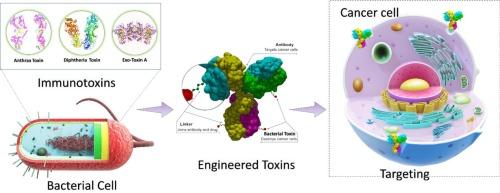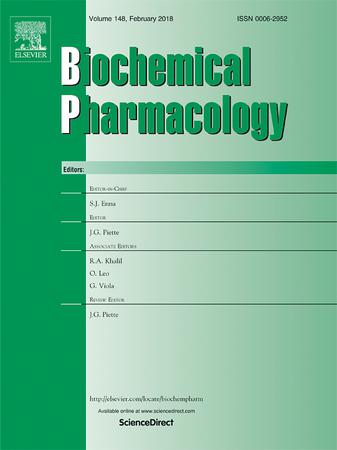Bacterial toxins as immunomodulatory agents in cancer therapy
IF 5.6
2区 医学
Q1 PHARMACOLOGY & PHARMACY
引用次数: 0
Abstract
Bacterial toxins have emerged as promising anticancer therapeutics, transforming from pathogenic agents to precision treatment modalities. They provide exceptional specificity for cancer cells while largely leaving healthy tissue unaffected, which solves one of the major limitations of traditional chemotherapy. This review explores the emerging trends of bacterial-derived immunotoxins and chimeric toxins for target specificity and their promise as future anticancer therapies. It defines the potential of bacterial toxins as anticancer agents through an immuno-modular design using the targeting moieties of antibodies, affibodies, antimicrobial peptides (AMPs), and cytokines. Further, this encompasses current drug delivery applications of bacterial toxins and bacterial extracellular vesicles in cancer-targeted therapy and clinical translation challenges. This review represents a systematic approach by describing bacterial toxin-based immunotherapy as a new paradigm shift for the useful employment of bacterial components in precision oncology.

细菌毒素在癌症治疗中的免疫调节剂作用。
细菌毒素已经成为一种很有前景的抗癌治疗药物,从致病性药物转变为精确的治疗方式。它们为癌细胞提供了特殊的特异性,同时在很大程度上不影响健康组织,这解决了传统化疗的主要局限性之一。本文综述了细菌来源的免疫毒素和嵌合毒素在靶向特异性方面的新趋势及其作为未来抗癌治疗的前景。它通过使用抗体、粘附体、抗菌肽(amp)和细胞因子的靶向部分的免疫模块化设计,定义了细菌毒素作为抗癌剂的潜力。此外,这包括细菌毒素和细菌细胞外囊泡在癌症靶向治疗和临床翻译挑战中的当前药物递送应用。这篇综述代表了一种系统的方法,通过描述基于细菌毒素的免疫治疗作为一种新的范式转变,细菌成分在精确肿瘤学中的有用应用。
本文章由计算机程序翻译,如有差异,请以英文原文为准。
求助全文
约1分钟内获得全文
求助全文
来源期刊

Biochemical pharmacology
医学-药学
CiteScore
10.30
自引率
1.70%
发文量
420
审稿时长
17 days
期刊介绍:
Biochemical Pharmacology publishes original research findings, Commentaries and review articles related to the elucidation of cellular and tissue function(s) at the biochemical and molecular levels, the modification of cellular phenotype(s) by genetic, transcriptional/translational or drug/compound-induced modifications, as well as the pharmacodynamics and pharmacokinetics of xenobiotics and drugs, the latter including both small molecules and biologics.
The journal''s target audience includes scientists engaged in the identification and study of the mechanisms of action of xenobiotics, biologics and drugs and in the drug discovery and development process.
All areas of cellular biology and cellular, tissue/organ and whole animal pharmacology fall within the scope of the journal. Drug classes covered include anti-infectives, anti-inflammatory agents, chemotherapeutics, cardiovascular, endocrinological, immunological, metabolic, neurological and psychiatric drugs, as well as research on drug metabolism and kinetics. While medicinal chemistry is a topic of complimentary interest, manuscripts in this area must contain sufficient biological data to characterize pharmacologically the compounds reported. Submissions describing work focused predominately on chemical synthesis and molecular modeling will not be considered for review.
While particular emphasis is placed on reporting the results of molecular and biochemical studies, research involving the use of tissue and animal models of human pathophysiology and toxicology is of interest to the extent that it helps define drug mechanisms of action, safety and efficacy.
 求助内容:
求助内容: 应助结果提醒方式:
应助结果提醒方式:


